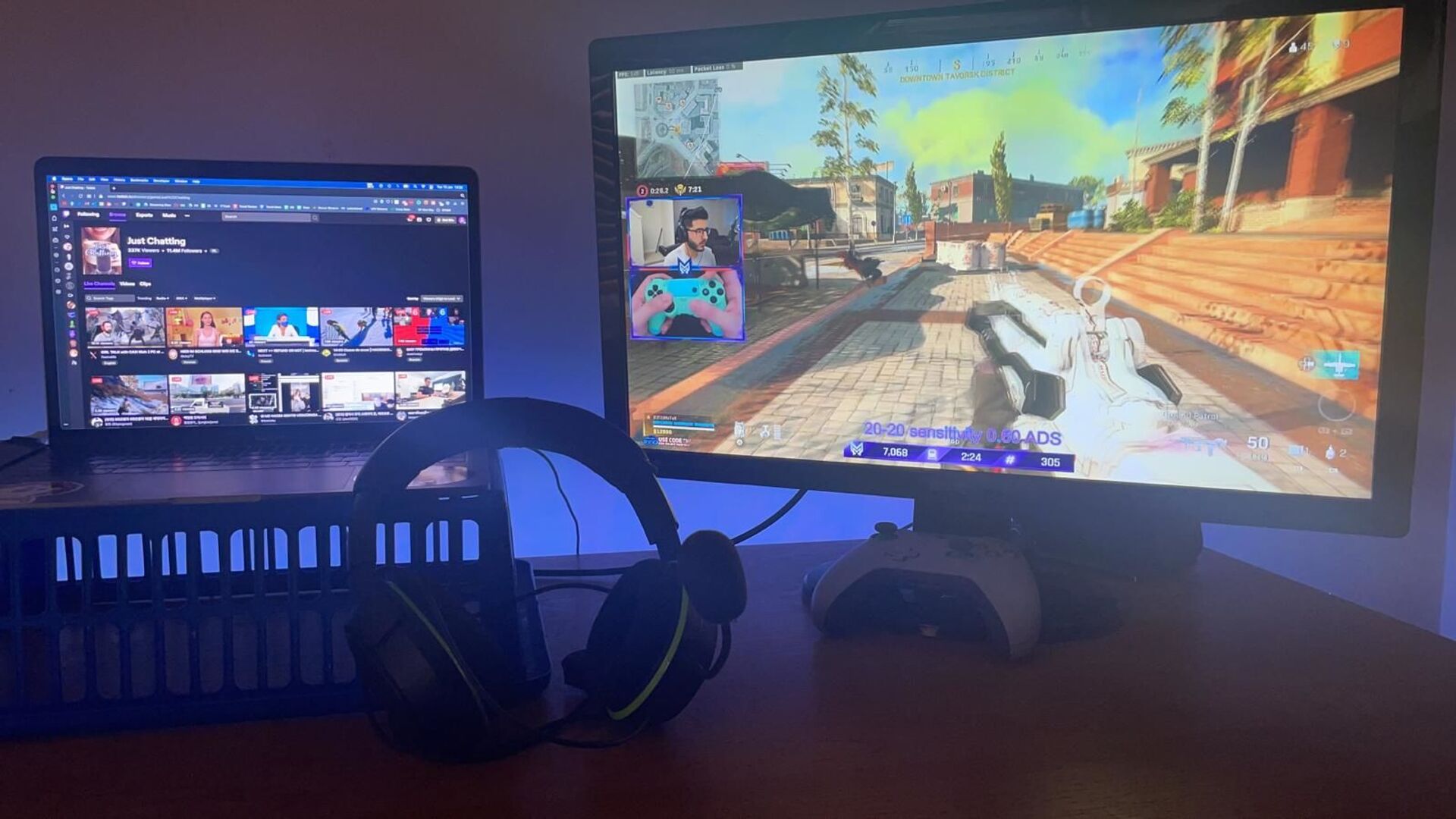https://sputnikglobe.com/20220910/the-future-is-now-online-gamers-brains-synchronize-when-playing-together-research-shows-1100636073.html
The Future is Now: Online Gamers’ Brains Synchronize When Playing Together, Research Shows
The Future is Now: Online Gamers’ Brains Synchronize When Playing Together, Research Shows
Sputnik International
Many people believe that playing videogames too much may affect your brain. Well, there seems to be some truth in this - but in a positive fashion. 10.09.2022, Sputnik International
2022-09-10T13:34+0000
2022-09-10T13:34+0000
2023-04-21T10:42+0000
gamers
online gamers
science & tech
https://cdn1.img.sputnikglobe.com/img/07e6/07/15/1097659614_0:100:1921:1180_1920x0_80_0_0_1015a531e4127cba846f524318cf069c.jpg
According to new research published by a group of scientists from the University of Helsinki in Finland, people's brains activate in a similar and simultaneous way during social interaction – including online gamers playing together, even if they are isolated in real life.During the study, 42 students were put into pairs and asked to play a specially designed game where they worked together to control a racing car - one gamer was responsible for speed and the other for its direction.The participants were split into separate rooms and were not able to communicate with each other outside the testing environment. Their electroencephalogram (EEG) scans showed that the players actually achieved brainwave synchronization across alpha, beta, and gamma waves.The test also showed that there is a strong connection between the increased synchronization in the alpha and gamma frequency bands and the successful gaming performance.The researcher noted that inter-brain synchronization, the effects of which can be reliably measured during gaming, opens new prospects when it comes to the positive results of online games. According to Wikström, "developing aspects in games that lead to increased synchronization and empathy can have a positive impact even outside of gaming.”
Sputnik International
feedback@sputniknews.com
+74956456601
MIA „Rossiya Segodnya“
2022
Evgeny Mikhaylov
https://cdn1.img.sputnikglobe.com/img/07e4/09/07/1080390164_0:0:1440:1440_100x100_80_0_0_46c187f2ab0908f86849a7d09a7def57.jpg
Evgeny Mikhaylov
https://cdn1.img.sputnikglobe.com/img/07e4/09/07/1080390164_0:0:1440:1440_100x100_80_0_0_46c187f2ab0908f86849a7d09a7def57.jpg
News
en_EN
Sputnik International
feedback@sputniknews.com
+74956456601
MIA „Rossiya Segodnya“
Sputnik International
feedback@sputniknews.com
+74956456601
MIA „Rossiya Segodnya“
Evgeny Mikhaylov
https://cdn1.img.sputnikglobe.com/img/07e4/09/07/1080390164_0:0:1440:1440_100x100_80_0_0_46c187f2ab0908f86849a7d09a7def57.jpg
gamers, online gamers, science & tech
gamers, online gamers, science & tech
The Future is Now: Online Gamers’ Brains Synchronize When Playing Together, Research Shows
13:34 GMT 10.09.2022 (Updated: 10:42 GMT 21.04.2023) Many people believe that playing videogames too much may affect your brain. Well, there seems to be some truth in this - but in a positive fashion.
According to new research published by a group of scientists from the University of Helsinki in Finland,
people's brains activate in a similar and simultaneous way during social interaction – including online gamers playing together, even if they are isolated in real life.
"We were able to show that inter-brain phase synchronization can occur without the presence of the other person," said cognitive researcher Valtteri Wikström. "This opens up a possibility to investigate the role of this social brain mechanism in online interaction."
During the study, 42 students were put into pairs and asked to play a specially designed game where they worked together to control a racing car - one gamer was responsible for speed and the other for its direction.
The participants were split into separate rooms and were not able to communicate with each other outside the testing environment. Their electroencephalogram (EEG) scans showed that the players actually achieved brainwave synchronization across alpha, beta, and gamma waves.
The test also showed that there is a strong connection between the increased synchronization in the alpha and gamma frequency bands and the successful gaming performance.
The researcher noted that inter-brain synchronization, the effects of which can be reliably measured during gaming, opens new prospects when it comes to the positive results of online games. According to Wikström, "developing aspects in games that lead to increased synchronization and empathy can have a positive impact even outside of gaming.”
"If we can build interactive digital experiences which activate fundamental mechanisms of empathy, it can lead to better social relationships, well-being, and productivity online,” cognitive neuroscientist Katri Sarrikivi, who managed the research project, concluded.



